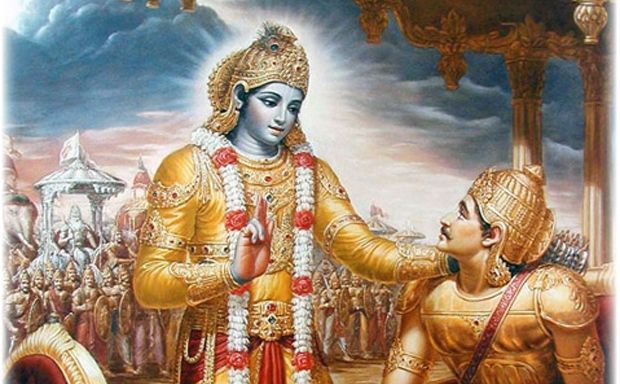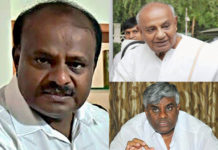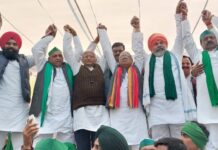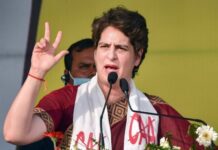In India, we are facing an existential crisis 75 years after independence. The majoritarian view of the nation is undermining democratic institutions and their autonomy. Instead of drawing principles from Constitution, religion and mythological text have become significant points of debate. I argue that these mythological texts are part of the culture and must be celebrated, but they can be detrimental for a nascent democratic nation if taken out of context. I draw my arguments from Amartya Sen’s book The Argumentative Indian.
It takes time for institutions to mature. Our inability to protect these institutions could be fatal.
B. R. Ambedkar – “The sovereignty of scriptures of all religions must come to an end if we want to have a united, integrated modern India.”
It is complicated to draw democratic principles from the mythological texts. The morality of actions come from the duty of individuals. These are deontological arguments. On the other hand, one can be consequentialist when one debates the impact or consequences of their actions. There is also minimal scope for discussions, debates and deliberations. However, mythologies can often become society references points; Legends can become ideal heroes often; mythologies can be used to decipher the working ideology of a society.
In Hindu mythology, It may be easier to draw ideas of patriarchy and an unhealthy sense of obedience as a form of reverence to the elders; for example, Parasurama’s matricide, the sacrifice of youth by Puru and Bhimsma to their father’s lust are just a few examples. The mythologies go beyond the idea of filial piety ( taking care of parents), but heroes tend to sacrifice themselves for the elders, often parents.
However, here I want to draw two actors who contradict the usual behaviour. Vibhishana for his dissent in Ravana’s court and Arjuna for being a consequentialist hero who questions Krishna before he wages war and the argumentative nature of their discussion.
Vibhishana’s Dissent –
The war was imminent. Ravana had not sought the advice of the council of ministers. After all, this was a personal battle with the two brothers. His ego and arrogance had precipitated this situation.
However, Vibhishana felt bound to make his utmost effort to save him and the Rakshasa race from doom. He stood up and spoke:
“You have brought Sita and with her, death for yourself and your race. Your first duty to yourself and your people is to restore her to Rama. If you fail in this, we shall all assuredly perish.”

Ravana’s rage was now uncontrollable.
Having spoken thus, He realises that there was no place for him in Lanka after that. Vibhishana renounced all his possessions, leaving his wife behind and proceeded straight to the spot where Rama and Lakshmana were camping. Vibhishana, the youngest of the asura royal family, neither does come across as a strong warrior nor does he have the authority to dictate terms. His role in Lanka is merely administrative. He, on his own, would not command any respect from the asuras ( for his strength and courage were not even comparable to Kumbhakarna). The asuras could potentially kill him for the betrayal, and so could the Rama’s camp, for mistaking him to be a spy. In many ways, Vibhishana’s choice to abandon Ravana and choose “dharma” was made under enormous pressure and threat.
Arjuna’s and Krishna debate –
Arjuna will be the crucial warrior when Pandavas fight the Kauravas. The war was for the kingdom the Pandavas rightfully own ( hereditary based right!! ). Arjuna is faced with fighting his cousins. He realises he must kill Bhishma, his Guru Dronacharya and Raj Guru Kripacharya. He realises the war of justice will have a miserable end. If he loses the battle, he loses it with his life; however, if he wins, he stands over the body of his loved ones. The questions of Arjuna are ethical and emotional. The final act of Krishna convincing him to play the role of a warrior is the crux of Hindu dharma.
Unlike most situations in Hindu Mythology, Arjuna, before the war, asks relevant questions; some are personal and many ethical. He is a consequentialist hero; he asks about the relevance of conflict, the cost of war, and the ethics of the war they were about to wage. Arjuna and Krishna deliberate. The contents and even the conclusion are a part of many theological debates, but the idea we can debate and deliberate before we act is fundamental to Democracy.

Arjuna confronts Krishna, does an individual pursue his duty without considering the consequences of their actions. Here Arjuna is concerned about the misery and suffering it brings. Here Arjuna is a consequentialist. Krishna argues that as humans, we must do our duty and not question the consequences.
One does wonder if Oppenheimer should have debated the consequences of his work.
Oppenheimer said: “When you see something that is technically sweet, you go ahead and do it, and you argue about what to do about it only after you have had your technical success.”
The long-drawn debate shows a sense of tolerance and the ability to listen. Democracy must be based on tolerance, discussions and deliberations of conflicting views. The principles of the argument are laid in the constitution, in fact, the preamble.
To be a healthy democracy, we must realise we cannot just rely on citizens voting every four years. It must be participatory, and for that, we need dissent. Dissent from weakest when heard is the strongest signal of a healthy democracy. Conflicting ideas must be placed and discussed. A healthy democracy is not just about the discussions and debates in Parliament but a building a consequentialist society and evaluates the welfare of the weakest (the least represented).
Amartya Sen reminds us in his book Argumentative Indian – that Akbar advocated the “rule of the intellect” ( rahi aql) and beautiful poem of Tagore’s Gitanjali that emphasises the idea of reason and freedom as intrinsically interlinked.
Where the mind is without fear and the head is held high;
Where knowledge is free;
Where the world has not been broken up into fragments by narrow domestic walls;
Where words come out from the depth of truth;
Where tireless striving stretches its arms towards perfection;
Where the clear stream of reason has not lost its way into the dreary desert sand of dead habit;
Where the mind is led forward by thee into ever-widening thought and action
Into that heaven of freedom, my Father, let my country awake.


























